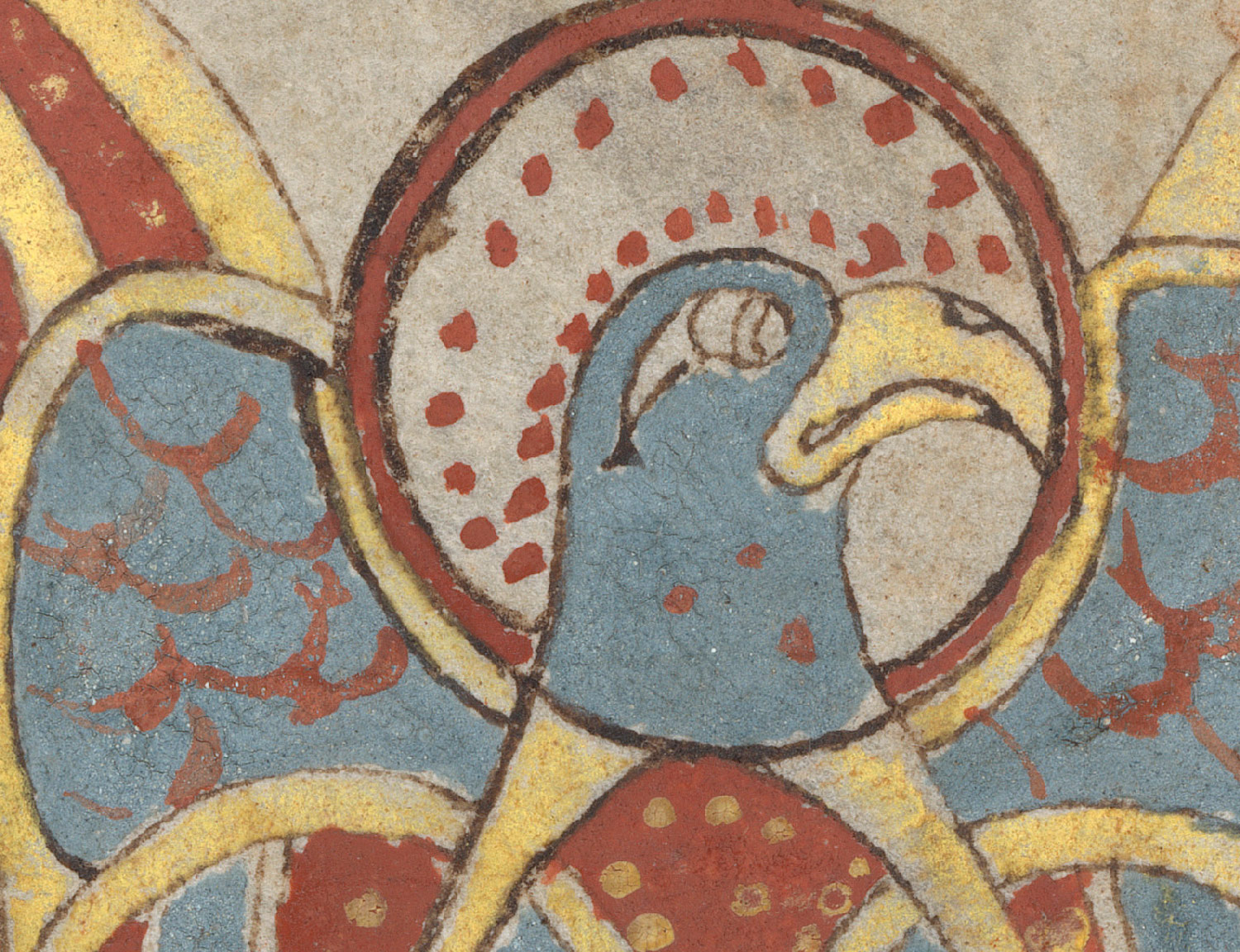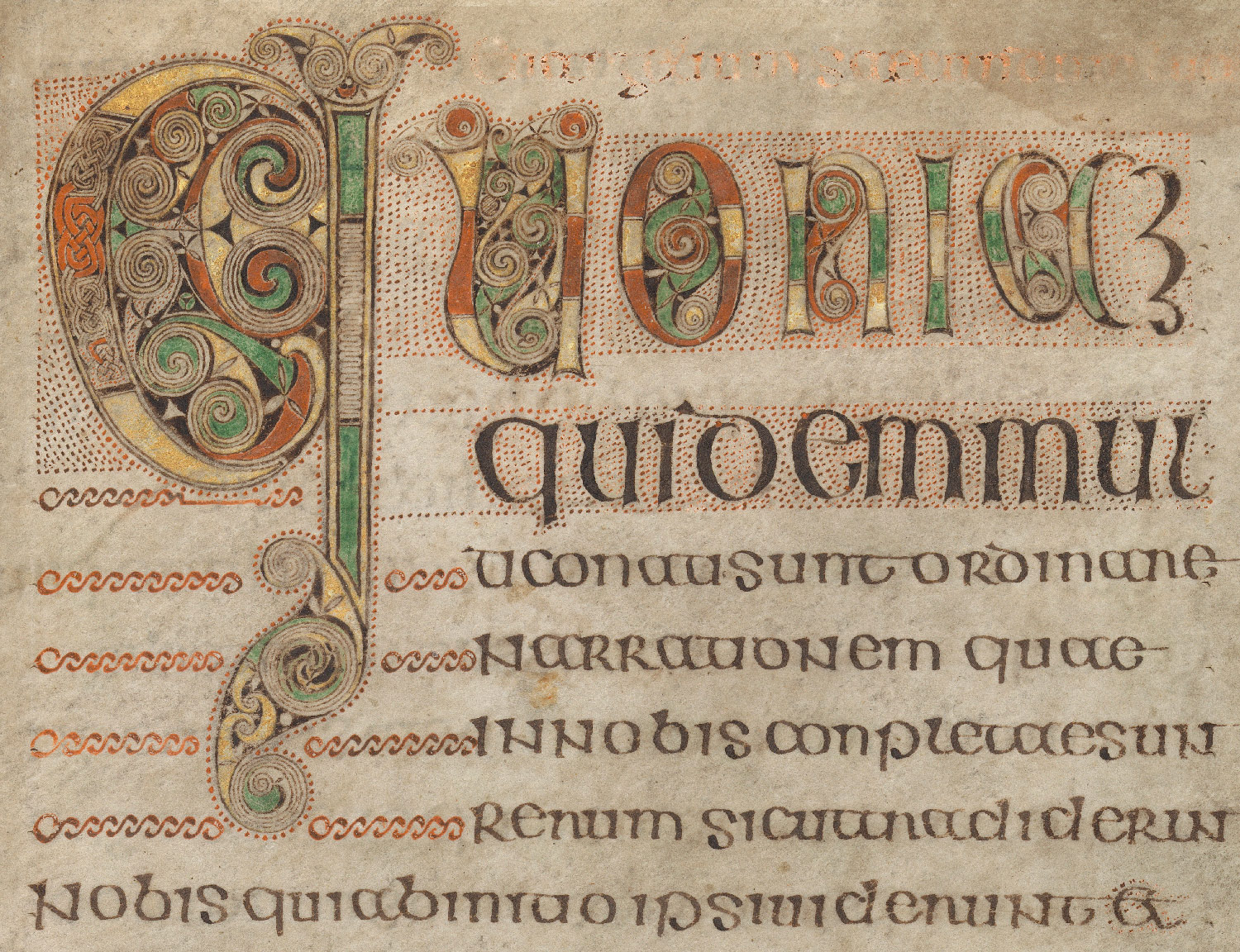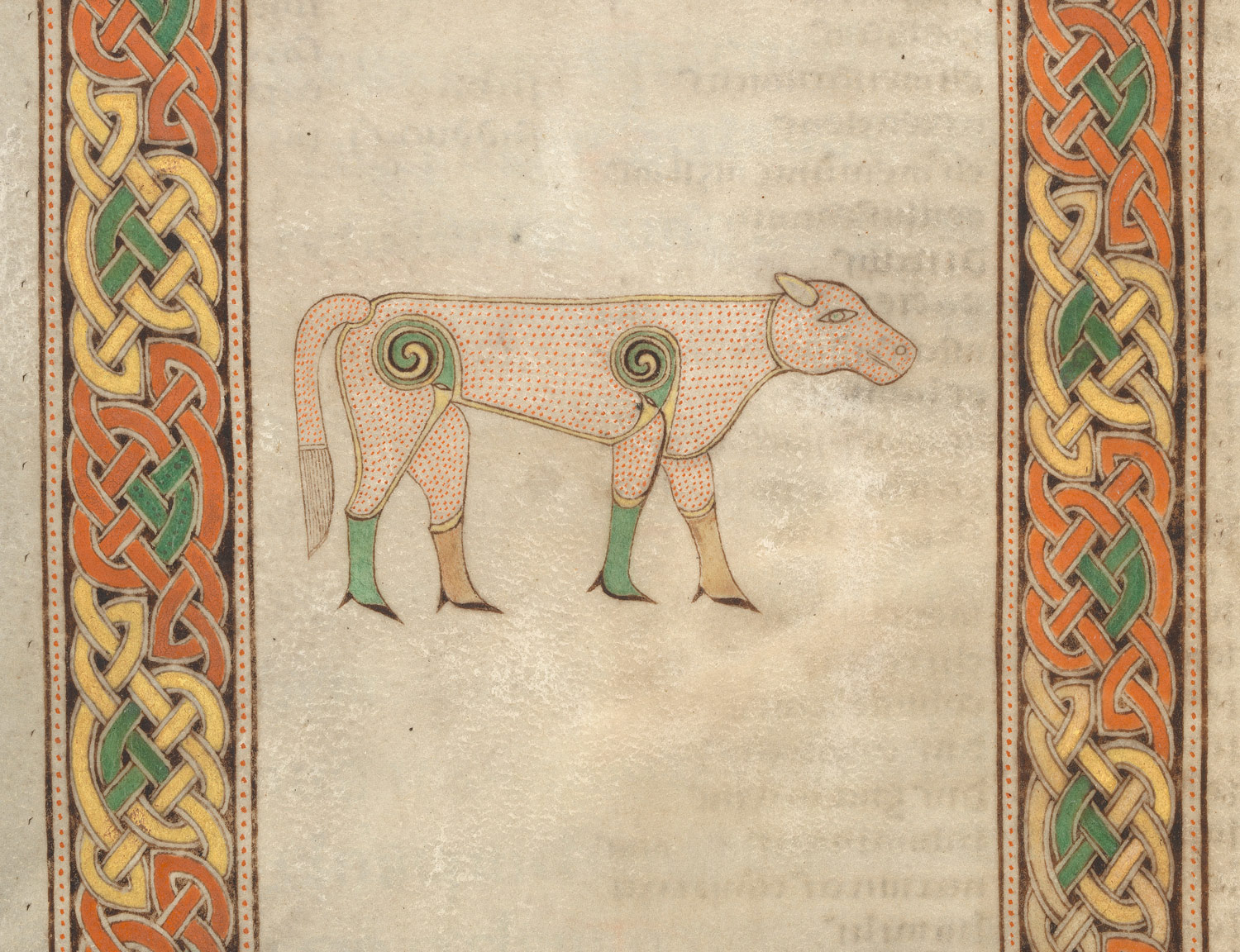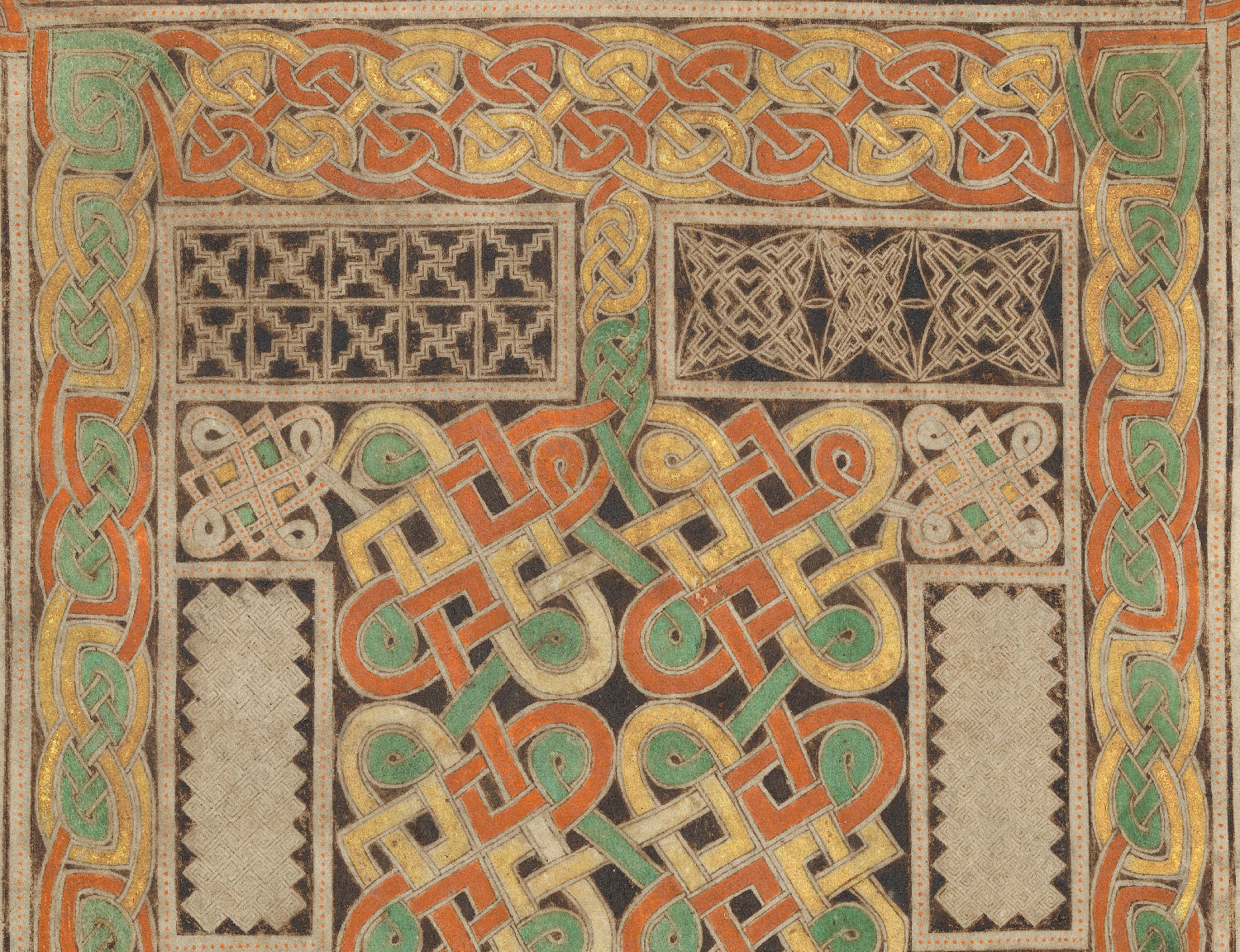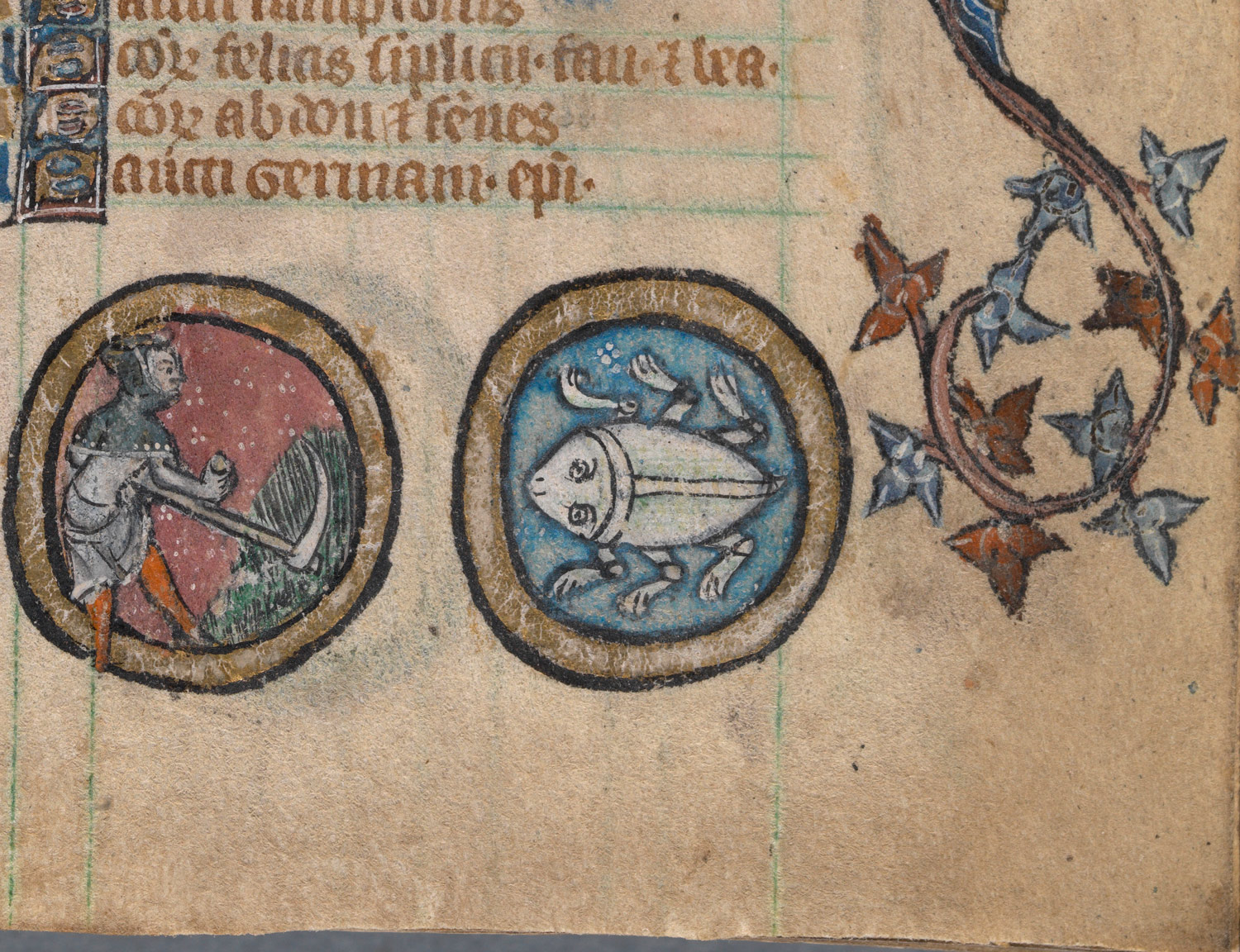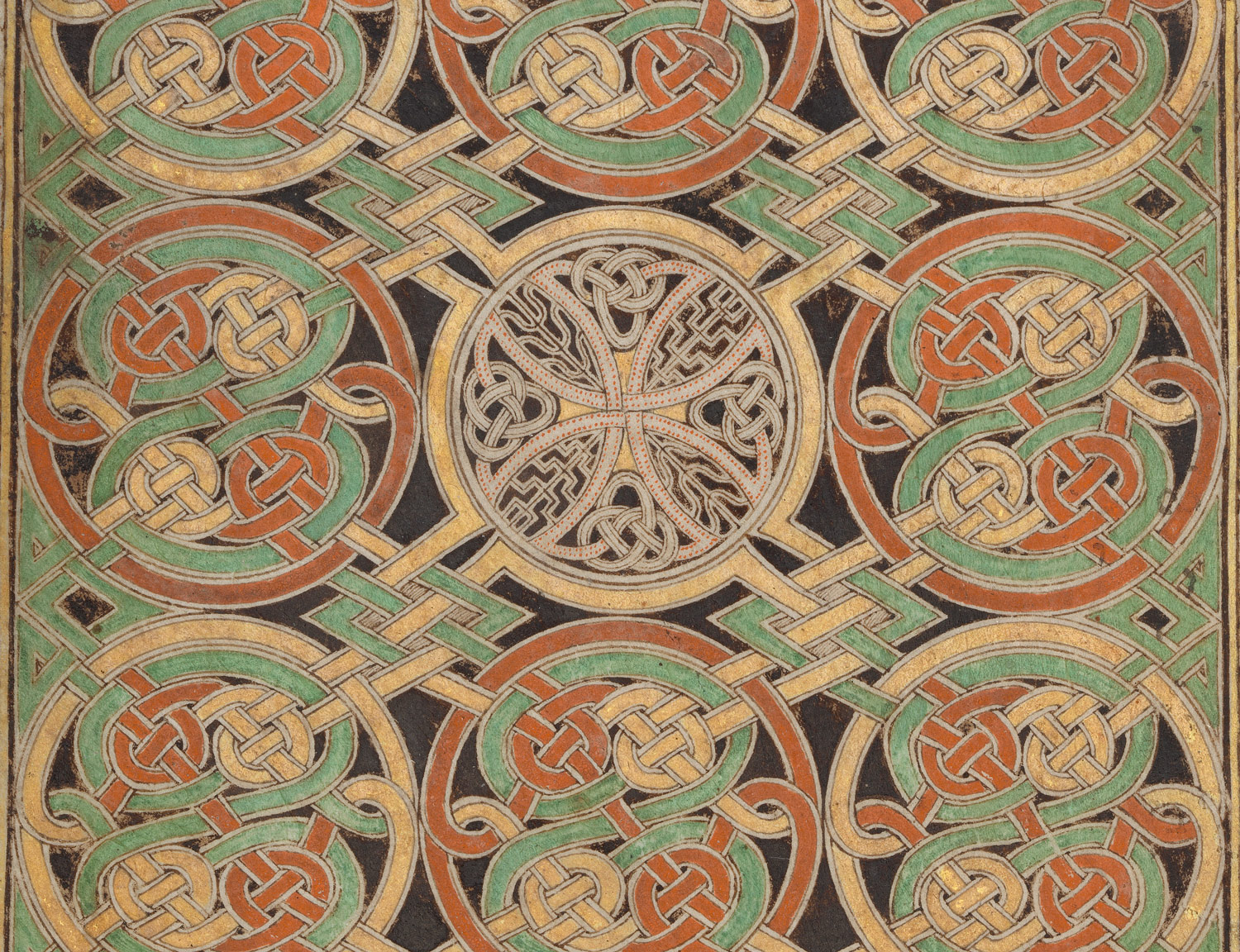Medieval Manuscript Cultures
These are the medieval manuscripts which were created in less-well-known Irish monasteries. Examples include the St Mary's Abbey manuscript, recently returned to Ireland after an absence of centuries; it came from a religious house which also acted as centre of secular power in the city of Dublin.
Secular Irish culture is also reflected in the medieval manuscripts written not in Latin but in the Irish language, the oldest vernacular language in Europe. The Book of Leinster is the jewel in the treasure house of material. Written in the 12th century, it captures the much older oral tradition which had begun to be replaced by writing from the fifth century. One quarter of all the surviving medieval Irish-language material are to be found in Trinity. The legal and medical texts are particularly important; not alone do they show the outside influences on the professional thought in the country, but the many layers of handwritten glosses on every page, written by generations of scholars over the centuries, track the changes in the language itself.
Digitisation of this unique material allows current and future scholars of all ages to engage with these texts without the barriers of space and the limitations imposed by the fragility of the material. As university teaching changes, moving increasingly online, it is vital to allow teacher access to the materials upon which to build their courses. Making this material widely available will attract and create new audiences for this ancient European civilisation, and ensure that Irish scholarship continues to receive intellection impetus from scholars from other cultures.
As the study of national histories become increasingly contextualised in the contemporaneous histories of other peoples, it is increasingly necessary to provide the materials to support this broad curricula learning.
As a result of the generous funding of the Carnegie Corporation of New York, manuscripts including the Winchcombe Psalter (12th century) and the Life of St Alban (13th century) by Matthew Paris are currently being conserved and prepared for digitisation. This will support curriculum development at all levels, enable international research collaboration and reveal these incomparable manuscripts to new generations.


